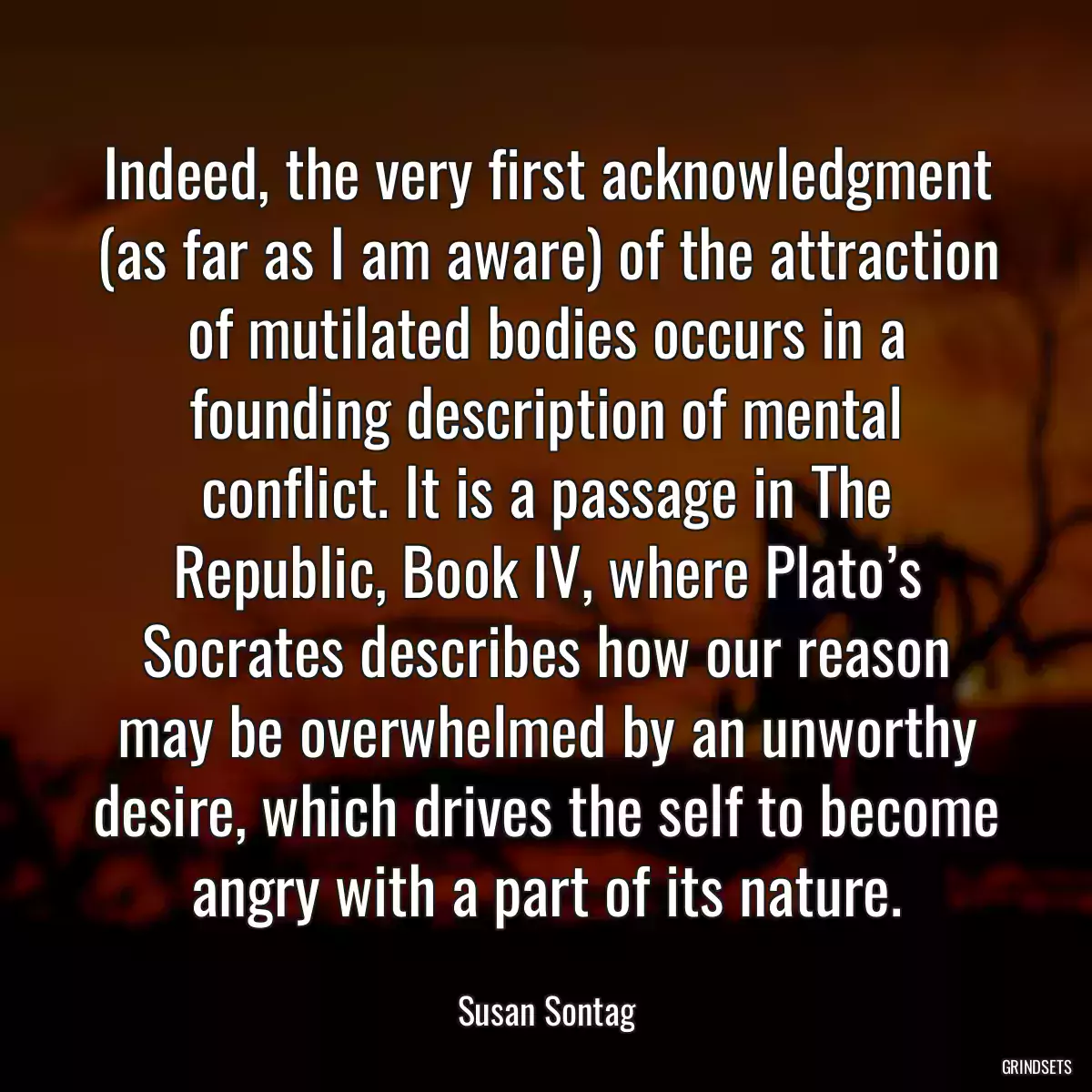
Indeed, the very first acknowledgment (as far as I am aware) of the attraction of mutilated bodies occurs in a founding description of mental conflict. It is a passage in The Republic, Book IV, where Plato’s Socrates describes how our reason may be overwhelmed by an unworthy desire, which drives the self to become angry with a part of its nature.